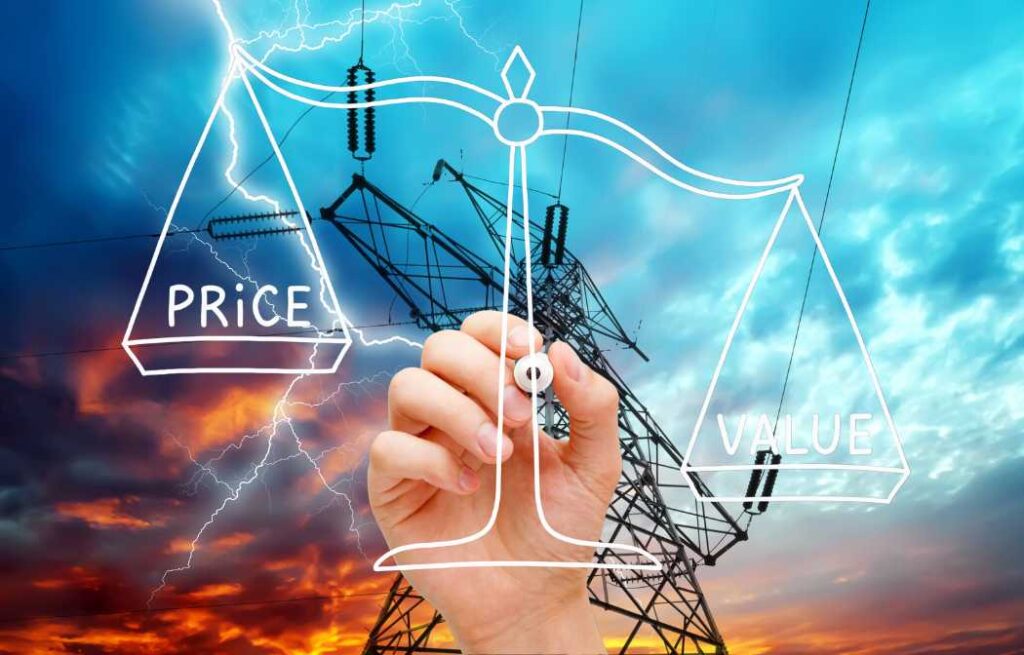Imagine this scene: you’re happily using your everyday appliances, but you are completely unaware of the financial storm brewing behind the scenes. Bangladesh Power Development Board (BPDB) is facing a massive financial problem, and it’s directly impacting how much we pay for our electricity now.

Lights On, Wallet Weeping: BPDB’s Losses Cast a Shadow on Electricity Prices
Currently the retail price of electricity per unit: is 201 to 300 units 6 taka 95 paisa, 301 to 400 units 7 taka 34 paisa, 401 to 600 units 11 taka 51 paisa and above 600 units 13 taka 26 paisa. Irrigation electricity is Rs 4 82 paisa and industrial Rs 8 to Rs 13 according to load.
Here’s the real fact: right now, it costs BPDB almost twice as much to generate electricity as it charges us for using it. According to the annual report of BPDB for the year 2022-23, 87 thousand 24 million kilowatt hours of electricity was generated at a total cost of Tk 98 thousand 646 crore in the financial year. Production cost per unit of electricity is 11 taka 33 paisa, sold at 6 taka 70 paisa; Loss 4 taka 63 paise.
In simpler terms, for every unit of electricity they produce, they’re losing over 4 taka! This translates to a whopping 47,788 crore taka loss in the last financial year alone.
The Price We Pay: How Much Does it Really Cost to Keep the Lights On in Bangladesh?
Let’s break down the numbers further: for those using 200 units or less, the current price remains unchanged. However, if you’re a high-power user, consuming more than 200 units, be prepared for a 5% price hike. Additionally, the government is currently purchasing 82,778 crore taka worth of electricity from private producers, further adding to the financial strain.
Amid this huge loss, electricity worth Tk 82,778 crore has to be purchased from private-sector power producers. And the government is producing electricity worth 13 thousand 307 crores from its power plant.
According to the news agency UNB, Minister of State for Power, Energy and Mineral Resources Nasrul Hamid has indicated to increase in electricity prices from March to address the growing gap between production costs and sales revenue. He said that this move aims to reduce the financial pressure on the Bangladesh Power Development Board (BPDB) and the national economy.
Beyond the Bill: The Ripple Effect of Rising Electricity Prices on Everyday Life
The price of electricity is increasing due to the increase in gas price in power generation. However, residential gas prices will remain unchanged. The state minister assured that the impact on retail consumers will be kept to a minimum. Those who use more electricity will have their prices hiked so that those with less capacity get subsidized electricity. This will not affect people’s lives much.
The State Minister said we need to adjust the price of electricity both at the retail and wholesale levels to meet the cost of production. But gas prices can be adjusted only in the case of power plants.
The dollar has also become a problem in purchasing electricity. The government buys electricity from the private sector and India in dollars.
Nasrul Hamid said in this regard, we are not getting dollars as per demand from Bangladesh Bank. He highlighted the urgent need for $1 billion monthly to meet payment obligations.
In the wake of the dollar crisis, the government has undertaken a bond issue of Tk 5,000 crore to ease the financial crisis, which is likely to rise to Tk 12,000 crore. However, officials admitted that this move coupled with ongoing subsidies may not be enough. They indicated further consideration for tariff adjustment or additional bond issues.
Power sector stakeholders say there is pressure from the International Monetary Fund (IMF) to de-subsidize the power and energy sector as a loan condition. It is in this background that electricity and gas prices are being increased. An automatic fuel oil price adjustment system is being launched.
The government is looking to completely phase out electricity subsidies within the next three years. A review by the Power Development Board (PDB) says that if the subsidy is removed, the cost of electricity could increase by 78 percent. The agency recommends that a step-by-step increase in prices will be affordable for the public. As a result, electricity prices may increase in several stages this year. PDB’s subsidy requirement in FY 2022-23 was Tk 39,535 crore.
Inflation will increase: Former chief economist of the World Bank. Zahid Hossain
The former chief economist of the World Bank, Zahid Hossain said that if the price of electricity increases, inflation will increase. The purchasing power of common people will further decrease. He also said that the cost of power generation comes down only by reducing corruption, managing load, and resolving controversial issues like capacity charges. It does not have to be imposed on the customer.
Let’s face the reality, Nobody enjoys paying more for anything, especially something as essential as electricity. The whole nation is suffering for this electricity crisis. The more everybody will understand the situation the better we have the chance to reduce it’s impact.
Everybody has to come forward and take steps to overcome this situation. Share the news, This is your story, unfolding in real time. Be a part of it.
Very interesting subject, thank you for putting up.Money from blog